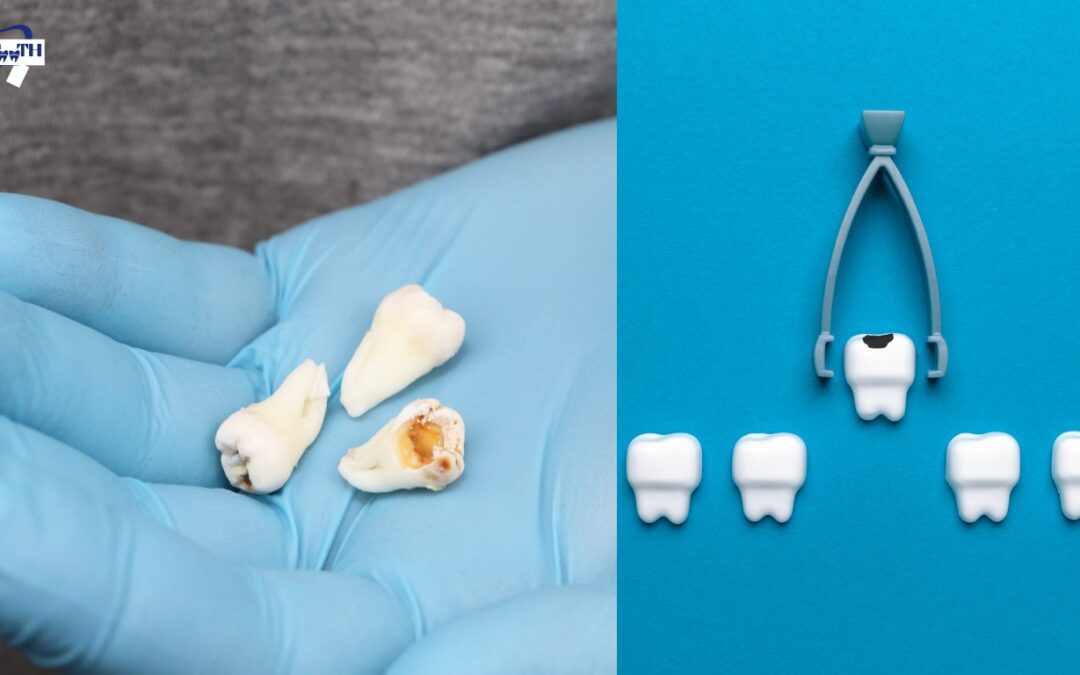Benefits of Removing Wisdom Teeth – wisdom teeth, often erupt between the ages of 17 and 25. If in good health and alignment, they can be a great asset, but often, they cause more harm than good. The first step towards having a healthier smile is identifying the warning symptoms of wisdom tooth issues.
Table of Contents
Red signals such as swelling, difficulty opening the mouth, and persistent pain should not be disregarded.
Why are Wisdom Teeth Called Wisdom Teeth?
The age at which wisdom teeth normally erupt—into one’s late teens or early twenties—is customarily linked to the acquisition of wisdom and maturity. This gives wisdom teeth their name. The phrase “wisdom teeth” refers to the belief that these third molars appear when a person is approaching adulthood and developing a more profound comprehension of life. The irony, though, is that many people experience difficulties and discomfort with the eruption of these molars, which frequently necessitates their extraction in order to maintain ideal dental health.
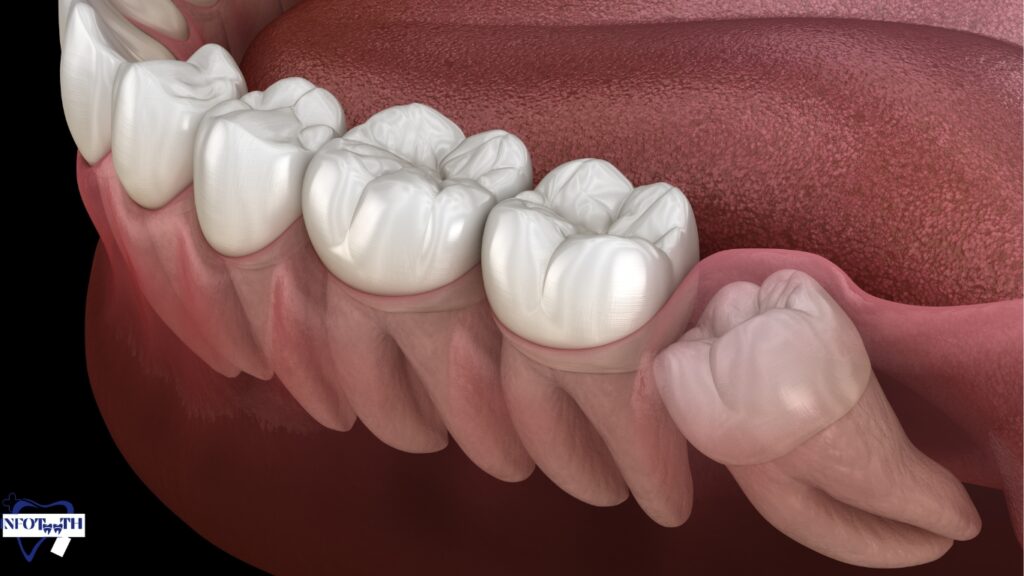
What are Benefits of Removing Wisdom Teeth?
Pain relief:
Benefits of removing wisdom teeth includes impacted or misplaced wisdom teeth can produce excruciating dental pain. Removal eases this pain and provides people with instant relief.
Prevention of Dental Problems:
Benefits of removing wisdom teeth-Extracting troublesome wisdom teeth helps shield the mouth from a number of dental problems. Extractions are a preventive step for long-term dental health, from cavities to gum disease.
Preventing Dental Crowning:
Benefits of removing wisdom teeth-Wisdom teeth can cause crowning by placing pressure on neighboring teeth. Their extraction maintains the correct alignment of the teeth that are already there, in addition to preventing misalignment.
Decreased Infection Risk:
Wisdom teeth that are impacted produce areas where germs can increase, raising the danger of infections. Removal lowers the risk of oral infections by acting as a preventive strategy.

Better Oral Hygiene:
Benefits of removing wisdom teeth discuss those people who have impacted wisdom teeth are more prone to cavities and gum disease since cleaning them can be difficult. After extraction, it’s easier to maintain dental care, which promotes healthier gums and teeth.
Improved General Oral Health:
Benefits of removing wisdom teeth includes that it can cause discomfort and irritation by adversely affecting gum health. A happier and healthier smile is encouraged by the considerable improvement in general oral health that comes with removal.
What is the Wisdom Teeth Removal Procedure?
The Wisdom Teeth Removal Procedure is a standard dental procedure intended to treat problems related to the third molars, also referred to as wisdom teeth. This treatment, which oral surgeons or dentists usually carry out, tries to reduce discomfort, avoid problems, and enhance general oral health.
The procedure starts with a comprehensive examination, which frequently includes X-rays to determine the wisdom teeth’s position, size, and alignment. The dentist decides on the necessity of extraction based on the evaluation.
Patients are given anesthetic before the surgery in order to minimize pain. Different types of anesthesia are available, ranging from general anesthesia for a deeper level of sedation to local anesthesia for specific teeth. The patient’s preferences and the case’s intricacy will determine the decision.
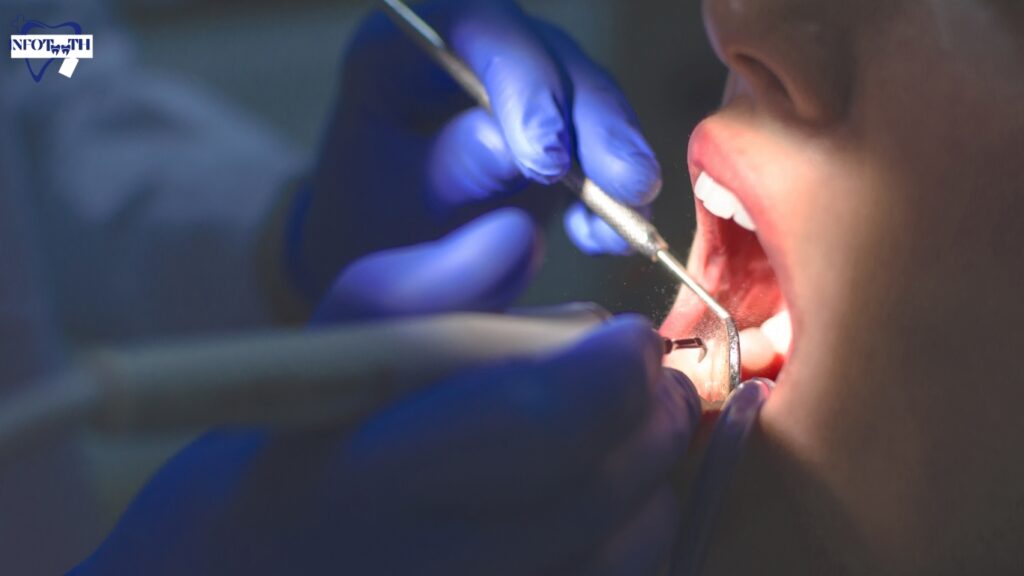
The dental surgeon expertly extracts the wisdom teeth, occasionally cutting them into tiny pieces to make the process go more smoothly. Incisions may need to be sewn up, and gauze is usually used to stop the bleeding.
Patients receive comprehensive postoperative advice. This contains instructions on how to handle pain, edema, and possible bleeding. Prescription drugs reduce pain, and follow-up visits let the dentist keep an eye on the healing process.
What is Wisdom Teeth Infection after Removal?
Although it’s not very common, infection is a possibility following wisdom tooth extraction. Wisdom tooth infections after extraction are possible if appropriate instructions for postoperative care are not followed or if there are underlying oral health problems. After extraction, the socket is vulnerable to microorganisms, which can cause infection if dental care is not followed.
Following extraction, a wisdom tooth infection may present with chronic pain, swelling, redness, and potentially even discharge from the surgical site. Some people may occasionally have poor breath or an unpleasant taste in their mouth. In order to reduce the risk of infection, patients must follow their dentist’s recommended postoperative care instructions.
It is imperative to maintain proper oral hygiene during the early healing phase, which includes light brushing, avoiding forceful rinsing, and avoiding specific foods. Furthermore, following a dentist’s recommendation and taking prescribed antibiotics can aid in the prevention or treatment of infections.
After having my wisdom teeth removed, when can I brush my teeth?
Appropriate treatment following wisdom tooth extraction is essential for a seamless and quick recovery. The question “When can I brush my teeth?” comes up frequently. As vital as it is to keep your mouth clean, you also need to exercise caution in the first few days after surgery.
Dentists usually advise not brushing your teeth for the first twenty-four hours following the extraction of wisdom teeth. Prioritize letting the blood clot develop and solidify in the surgical sites during this initial phase. This clot can be disturbed by brushing too quickly, which might result in issues like dry sockets.
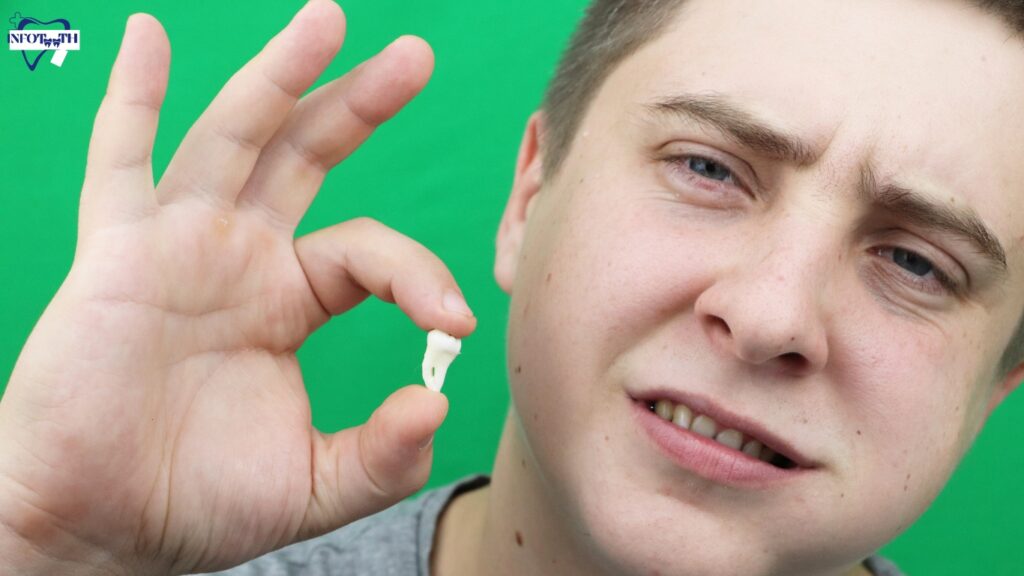
You can gradually start brushing your teeth again after the first twenty-four hours. On the other hand, great caution must be taken in the vicinity of the surgical sites. To minimize irritation, use a toothbrush with soft bristles, and don’t brush too vigorously. You should also rinse the remainder of your mouth gently and avoid the surgical sites.
Can I Eat Rice after Wisdom Teeth Removal?
Of course! It’s essential to adhere to certain dietary recommendations following wisdom teeth extraction in order to promote a quick and comfortable recovery. The answer to the question of whether rice may be eaten after the treatment is usually yes, but there are some restrictions.
Choose soft, well-cooked rice kinds, such as white rice, or, for even better results, rice porridge or congee. These chewable rice varieties are less likely to irritate the surgery sites and are easier to eat. To prevent any pain from the heat, make sure the rice is cooled to a reasonable temperature.
Hot, spicy, or hard meals should be avoided since they may impede the healing process or create discomfort. To make your rice more delicious and easier to eat, choose a lukewarm or cool temperature and think about adding some broth.
In order to avoid putting any unintentional pressure on the healing areas, always bite on the side of your mouth opposite the surgical sites. Moreover, after eating, gently rinse your mouth with a mouthwash that has been prescribed or a warm saltwater solution to maintain proper oral hygiene.
Can You Drink Soda after Wisdom Teeth Removal?
Of course! It may be tempting to indulge in a refreshing soda after wisdom teeth removal, but you should proceed cautiously. A successful recovery from surgery depends on your postoperative care, and you should exercise caution when eating carbonated drinks.
To prevent irritating the surgical areas, it is advised to consume only soft, chilled foods right after the extraction. Because of their acidity and fizz, carbonated sodas have the potential to aggravate pain and interfere with the healing process. Pressure from the soda bubbles may cause discomfort in your mouth, particularly if the surgery areas are still sensitive.
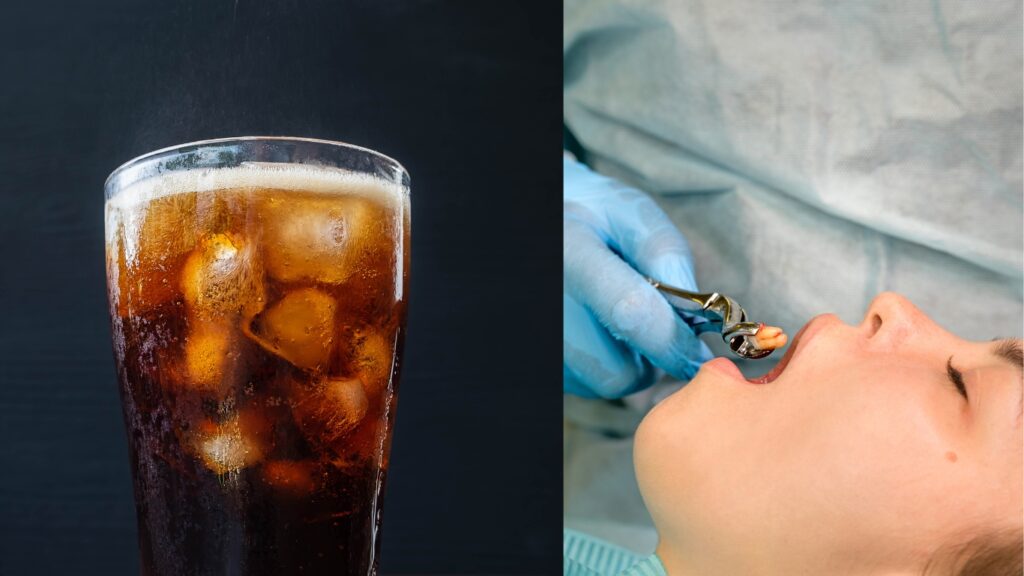
In addition, the high sugar content of many sodas raises the possibility of oral infections by encouraging the growth of germs. During the healing phase, choosing low- or sugar-free options may be a better option if you’re desiring a Coke.
Wisdom Teeth Removal Impact on Brain?
Pain and Stress Reduction:
Extracting wisdom teeth can ease long-term pain and discomfort and lower stress levels, which may have a positive indirect effect on general mental health.
Better Sleep:
Benefits of removing wisdom teeth discuss that wisdom teeth that are impacted can cause pain that keeps you from sleeping. Elimination could improve the quality of sleep, which would improve cognitive performance.
Preventing Infections:
Systemic inflammation brought on by infected wisdom teeth has been connected to a number of cognitive problems. Elimination aids in the prevention of these illnesses.
Pain Relief:
Benefits of removing wisdom teeth includes The headaches caused by wisdom teeth can be extremely painful. This pain may be eased by extraction, improving general quality of life and lowering stress levels.

Enhanced Self-Esteem:
Self-esteem can be impacted by problems with oral health. The extraction of wisdom teeth can have a favorable impact on one’s confidence and self-perception by enhancing dental health. These are benefits of removing wisdom teeth.
What are Disadvantages of Wisdom Teeth?
When discussing Benefits of removing wisdom teeth also there are disadvantages. The third set of molars, known as wisdom teeth, which usually erupt in late adolescence or early adulthood, can have a number of negative effects. Impaction, in which these molars don’t have enough room to fully emerge or develop normally, is one major disadvantage. This may result in discomfort, edema, and agony that calls for extraction.
Wisdom teeth are vulnerable to decay and infections because of their proximity to neighboring molars and their difficulty being reached during dental care procedures. Because of their position at the back of the mouth, they are more difficult to clean thoroughly, which raises the risk of gum disease and cavities. This increased vulnerability to dental problems could require more frequent dental procedures and affect general oral health.
Dental crowning, a condition in which newly erupted wisdom teeth press against already-existing teeth and cause misalignment, is an additional drawback. This can result in additional dental issues in addition to impairing the smile’s aesthetic appeal.
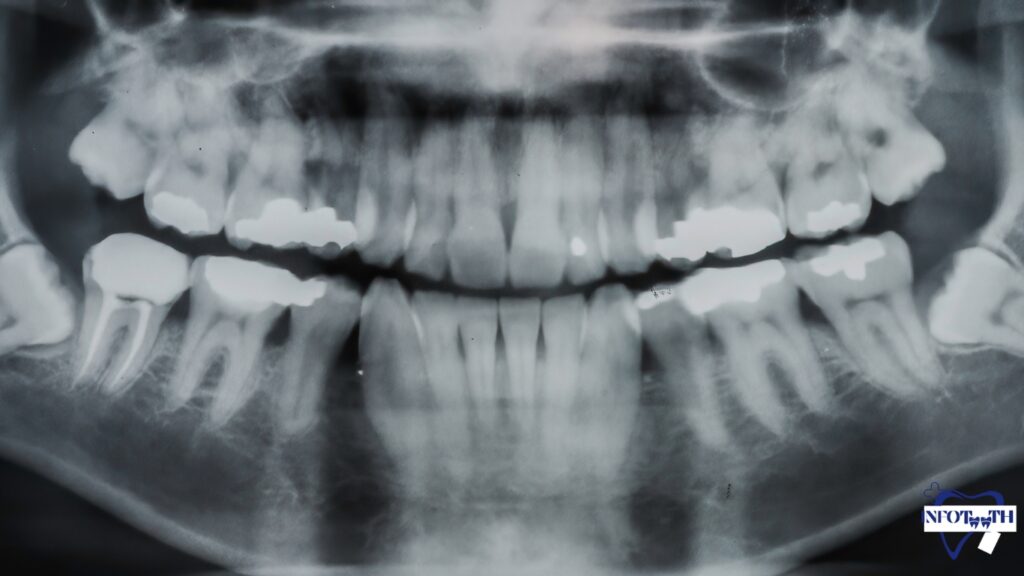
Moreover, the harmony of the current dental arch may be upset by the wisdom teeth delayed eruption, which frequently happens after a stable bite has been established. This may cause pain, make it harder to chew food and raise the risk of temporomandibular joint (TMJ) problems.
Conclusion
To sum up, the benefits of removing wisdom teeth go well beyond just relieving discomfort. It’s a proactive move that will guarantee long-term oral health, stop problems, and promote a happier, healthier smile. See your dentist to determine the best course of action for your wisdom teeth before waiting for the discomfort to worsen.
FAQs
Q :Is wisdom teeth removal painful?
A: Wisdom teeth removal is typically performed under anesthesia, ensuring minimal pain during the procedure. Postoperatively, prescribed medications help manage any discomfort.
Q: Can I wait to remove my wisdom teeth if they’re not causing pain?
A: While immediate pain is a common sign, it’s advisable to consult with a dentist. Wisdom teeth can cause issues without apparent symptoms, and proactive removal is often recommended.
Q: How long does the recovery process take after wisdom teeth removal?
A: The recovery period varies for each individual but generally takes about one to two weeks. Following postoperative care instructions significantly influences the healing process.
Q: Is there a risk involved in getting rid of wisdom teeth?
A: There are risks associated with any surgical operation, but problems are uncommon. Before a procedure, dentists educate their patients about any possible hazards so that they may make an informed decision.
Q: What would happen if I decide against getting my wisdom teeth extracted?
A: Ignoring problematic wisdom teeth can result in a number of issues, such as cysts, infections, and harm to nearby teeth. It is advised to remove things early to prevent these problems.

